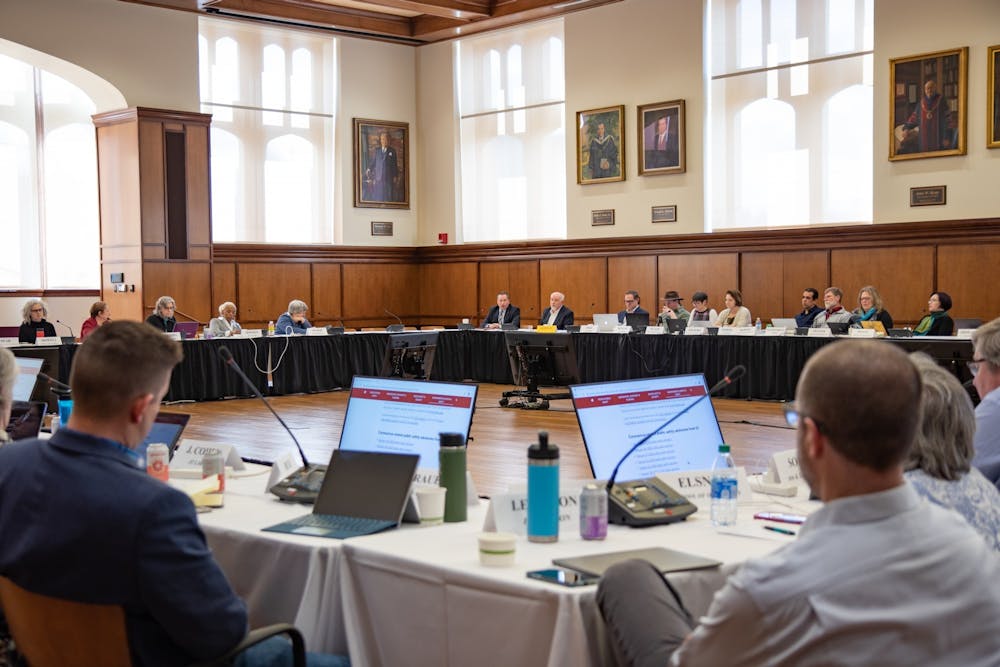The Bloomington Faculty Council introduced changes to IU’s Student Code of Conduct at its Tuesday meeting. The proposed changes would affect the ways in which students who have been accused of academic misconduct would appeal the allegations.
The BFC Student Affairs Committee suggested that alleged bias and arbitrary and disproportionate outcomes should be added to the list of reasons a student could appeal. This would essentially expand the reasons a student could attempt to appeal accusations of misconduct for things like cheating or plagiarism.
Alongside this, the committee suggested changing the use of “calendar days” to “business days” in its calendars and documents. Student Affairs Committee co-chair Katie Metz said this would improve the consistency within its codes and agreements.
Multiple members of the BFC shared concerns regarding these changes and how it might affect the faculty in the future. Law professor Steve Sanders, like many other faculty, was concerned faculty wouldn’t be able to address appeals within the updated seven business days.
Mike Ryan, the assistant director for the office of Student Conduct, disagreed, saying the timeline is long enough for faculty to address appeals. He said most of the cases submitted to the department are already filed within this updated time period.
Before discussing the proposed updates to the Student Code of Conduct, the council addressed issues with the automated email updates from the Student Engagement Roster system. Professors use this system preliminarily to inform students of their performance in class before official grades are released.
IU-Bloomington was the last IU campus to utilize this system. Many faculty members said both students and professors are experiencing issues with the automated emails it sends to students.
IU Gender Studies Professor Colin Johnson said some of his students were confused by the use of the first-person viewpoint in these evaluation emails, leading the students to believe they were sent directly from the professors themselves. He said these students then felt obligated to respond to the email, causing confusion for him and other professors.
Because of the use of the first-person viewpoint in these emails, some professors felt as if they were being impersonated, not having sent the emails themselves.
Acting Vice Provost Kurt Zorn addressed the claim of many faculty members that they were now overwhelmed with emails from students regarding the student engagement roster evaluations. He said the intention was for students to be more involved with their course progress, not for faculty to be overwhelmed. He still appreciated the criticism and said that the BFC should consider these criticisms in future meetings.
The meeting ended prematurely so that an executive session — exclusively for elected members — could follow shortly thereafter. The council will continue this debate during their next meeting on Oct. 19.




